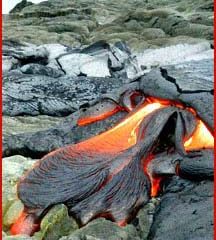
The storage of plutonium has long plagued scientists. “It is a dangerous metal and its long term storage must be done with special care so as not to harm the environment, ”said physicist Serguei Savrasov, Ph.D.
Finding a solution to this problem led Savrasov, an associate professor at New Jersey Institute of Technology (NJIT), and a team of researchers at Rutgers University and Los Alamos National Laboratories, to study how this metal reacts to heat, a natural condition of storage over time

Prions—their existence is intriguing and their links to disease are unsettling. These unconventional infectious agents are involved in mad cow disease and other fatal brain illnesses in humans and animals, rattling prior assumptions about the spread of infections.
Dartmouth Medical School biochemists studying the mysteries of these prion particles have discovered a novel step in their formation. Their results, reported in a recent issue of Biochemistry could help provide a new approach for

Weizmann Institute study suggests that rising carbon dioxide levels might cause forests to spread into dry environments
Missing: around 7 billion tons of carbon dioxide (CO2), the main greenhouse gas charged with global warming. Every year, industry releases about 22 billion tons of carbon dioxide into the atmosphere. And every year, when scientists measure the rise of carbon dioxide in the atmosphere, it doesn’t add up – about half goes missing. Figuring in the amount that could be s

In a Perspective in the May 9 issue of Science, geochemist Don DePaolo and geodynamicist Michael Manga defend a fundamental assumption of Earth science, the mantle plume model of hotspots, against an outbreak of seismic skepticism.
DePaolo and Manga are members of Lawrence Berkeley National Laboratory’s Earth Sciences Division and the University of California at Berkeley’s Department of Earth and Planetary Science. DePaolo studies the chemical signatures of geological structures l

Regulating cells under stress
An article published this week in the journal Nature provides the first experimental evidence for an unusual molecular bonding mechanism that could explain how certain cells adhere to surfaces such as blood vessel walls under conditions of mechanical stress.
Known as “catch bonds,” the adhesion mechanism displays surprising behavior, prolonging rather than shortening the lifetimes of bonds between specific molecules as increasing force is applied. Pr

Farmers can prioritize areas within fields to reduce nitrate contamination
Fine-tuning fertilizer and irrigation management requires farmers to carefully balance optimizing yield and protecting groundwater quality. Some states even require farmers to use crop production practices to minimize nitrate leaching to groundwater in environmentally sensitive areas.
One such practice is using a nitrification inhibitor when applying nitrogen fertilizer, which helps protect nitrogen f

– new calculation confirms standard model of particle physics. Contribution of hadronic vacuum polarization determined with unprecedented accuracy. The magnetic moment of the muon is an important precision parameter for…
Technique may prevent formation of unwanted waves that siphon off needed energy. Heating plasma to the ultra-high temperatures needed for fusion reactions requires more than turning the dial on a…

An international team of astronomers, led by researchers from the Astronomical Observatory of the University of Warsaw, have identified a new class of cosmic X-ray sources. The findings have been…

Antibody that Neutralizes Inhibitory Factors Involved in Nerve Regeneration Leads to Enhanced Motor Function after Acute Spinal Cord Injury. Researchers at 13 clinics in Germany, Switzerland, the Czech Republic and…

How the body’s natural killer cells could fight leukemia. Every year, some 13,000 people in Germany are diagnosed with leukemia. Despite intensive chemotherapy, around one in two of them die….

… eco-friendly reactor converts air and water into ammonia. Producing enough ammonia to feed the world comes with a large carbon footprint;. process described in new UB-led study could help…

How simulations help manufacturing of modern displays. Modern materials must be recyclable and sustainable. Consumer electronics is no exception, with organic light-emitting diodes (OLEDs) taking over modern televisions and portable…

“Neurons that fire together, wire together” describes the neural plasticity seen in human brains, but neurons grown in a dish don’t seem to follow these rules. Neurons that are cultured…

The quest for sustainable energy solutions has been a major focus of scientific research for decades. Solar energy, a clean and renewable source, has emerged as a promising alternative to…

With a processing speed a billion times faster than nature, chip-based laser neuron could help advance AI tasks such as pattern recognition and sequence prediction. Researchers have developed a laser-based…

New technology could remotely identify various types of plastics, offering a valuable tool for future monitoring and analysis of oceanic plastic pollution. Researchers have developed a new hyperspectral Raman imaging…

Artificial Intelligence (AI) has established a strong presence across industries, large and small. The “VoBaKI” research project has empowered small and medium-sized enterprises (SMEs) with an innovative tool to independently…